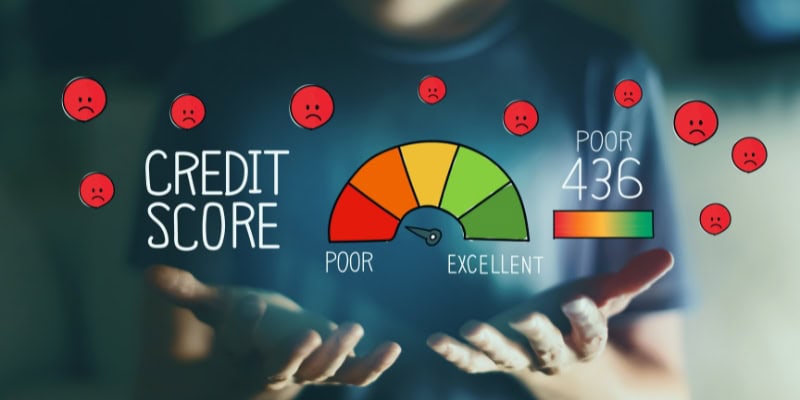Managing personal finances can often feel overwhelming—especially when faced with mounting debt, high interest rates, or uncertainty about the best repayment strategy. Many people don’t realize that credit counseling services offer more than just advice—they provide a practical pathway to financial stability. While both nonprofit and for-profit agencies exist, nonprofit credit counseling services stand out because of their mission-driven approach: their primary goal is to help individuals, not to generate profit.
At High Class Consulting, we believe financial literacy and access to resources are key to building lasting financial health. That’s why understanding the hidden benefits of nonprofit credit counseling can be life-changing for those struggling with debt, budgeting, or poor credit.
In this article, we’ll uncover the top benefits of nonprofit credit counseling services you may not know about—from personalized financial education to creditor negotiations, and even the emotional relief of having a professional in your corner. Whether you’re tackling credit card debt, planning for a big purchase, or simply aiming for long-term stability, credit counseling services can guide you toward success.
1. Personalized Financial Assessments That Go Beyond Numbers
One of the most overlooked benefits of nonprofit credit counseling services is the in-depth financial assessment they provide. Unlike generic online tools or financial blogs, credit counselors work one-on-one with clients to thoroughly evaluate:
- Income sources (salary, freelance, government benefits, etc.)
- Monthly expenses (rent, groceries, utilities, transportation)
- Outstanding debts (credit cards, student loans, medical bills)
- Financial goals (buying a home, saving for retirement, reducing debt quickly)
These assessments don’t just focus on the “what”—they dig into the “why” behind your financial challenges. For example, a counselor might identify overspending in discretionary categories, highlight patterns of late payments, or uncover opportunities for consolidation.
By tailoring advice to your unique situation, nonprofit credit counseling services help you create a customized action plan—something a simple internet search or budgeting app can’t provide.
2. Debt Management Plans (DMPs) That Save You Money
A major benefit of working with nonprofit credit counselors is access to Debt Management Plans (DMPs). These structured repayment programs allow you to consolidate unsecured debts, such as credit cards, into a single monthly payment.
Here’s how DMPs through credit counseling services typically help:
- Lower interest rates: Counselors often negotiate with creditors to reduce APRs, sometimes from 20%+ down to single digits.
- Waived late fees: Many creditors agree to remove past penalties once you’re enrolled in a DMP.
- Simplified payments: Instead of juggling multiple due dates, you make one affordable payment directly to the counseling agency.
- Faster payoff timeline: With reduced interest and fees, more of your money goes toward the principal balance, helping you get out of debt sooner.
Many people don’t realize that enrolling in a DMP doesn’t damage your credit the way debt settlement or bankruptcy can. In fact, consistent payments through a nonprofit program may improve your score over time.
At High Class Consulting, we emphasize the power of DMPs as a proactive solution—especially for clients who feel like they’re drowning in revolving debt.
3. Free or Low-Cost Financial Education Resources
Another underrated advantage of nonprofit credit counseling services is their commitment to financial education. Since nonprofits are mission-driven, they provide workshops, webinars, and self-paced courses at little to no cost.
These resources cover a wide range of topics:
- How to create and stick to a budget
- Understanding credit reports and scores
- The pros and cons of different loan types
- Saving strategies for emergencies and retirement
- Responsible credit card use
Unlike high-priced financial coaching programs, nonprofit agencies are funded by grants, donations, and small client fees. This means you get professional-grade education without breaking the bank.
The knowledge gained empowers individuals to not only resolve current debt but also avoid future financial pitfalls—a benefit many clients overlook.
4. Professional Negotiations with Creditors
Facing creditors can be intimidating, especially when you’re behind on payments. Nonprofit credit counseling services act as an intermediary, advocating on your behalf to:
- Reduce interest rates and fees
- Establish realistic repayment schedules
- Prevent accounts from going to collections
- Stop harassing phone calls from debt collectors
Because nonprofit agencies work with creditors regularly, they have established relationships and know what concessions lenders are likely to make.
For example, if you owe $10,000 across several credit cards, a credit counselor may be able to lower your interest rate from 25% to 8%. That could save you thousands of dollars over the life of your repayment plan.
This professional negotiation is a game-changer for clients who don’t know their rights or feel powerless when dealing with creditors.
5. Improved Credit Score Over Time
Many people mistakenly believe credit counseling will hurt their credit score. In reality, the opposite is often true. While simply meeting with a counselor won’t appear on your credit report, the steps you take afterward can significantly improve your financial health.
Benefits to your credit score include:
- On-time payments: Making consistent monthly payments through a DMP improves your payment history, the largest factor in credit scoring.
- Lower credit utilization: Paying down balances faster reduces your debt-to-credit ratio, another major factor in credit scores.
- Avoiding new negative marks: By working with creditors, you’re less likely to accumulate late payments, charge-offs, or collections.
In the long run, this improvement can open doors to better loan terms, lower insurance premiums, and even job opportunities where credit checks are required.
At High Class Consulting, we’ve seen clients transform from struggling with poor credit to qualifying for mortgages or business loans within just a few years of working with nonprofit credit counseling services.
6. Emotional Relief and Long-Term Financial Confidence
Debt doesn’t just impact your wallet—it weighs heavily on your mental and emotional health. The stress of unpaid bills, harassing creditor calls, or fear of bankruptcy can take a toll on your wellbeing.
Nonprofit credit counseling services provide more than financial solutions—they offer peace of mind. Knowing that a trained professional has created a clear plan reduces anxiety and restores hope.
Other emotional benefits include:
- Reduced stress from collection calls once creditors know you’re working with a counselor.
- Confidence in decision-making because you understand your financial situation better.
- A sense of control over your future rather than feeling at the mercy of debt.
Perhaps the most valuable long-term benefit is the financial confidence gained. Once you learn how to manage your budget, negotiate payments, and build credit responsibly, you’re equipped to maintain stability for life.
Conclusion
Nonprofit credit counseling services are far more than debt advice—they’re a lifeline for individuals and families struggling with financial challenges. From personalized assessments and structured Debt Management Plans to creditor negotiations, financial education, and emotional relief, the benefits extend well beyond what most people expect.
At High Class Consulting, we encourage anyone feeling overwhelmed by debt or uncertain about their financial future to explore nonprofit credit counseling. These services can save you money, protect your credit, and empower you with the knowledge to build lasting financial success.
Debt may feel like a burden you carry alone, but with the right guidance, you can take control, reduce stress, and reclaim your financial freedom. Nonprofit credit counseling services might just be the key you didn’t know you were missing.
so this blog ranks stronger for credit counseling services?






